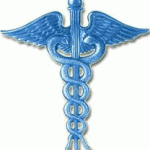 PART 2 (2 years after my Oh, My Aching Back post): Perhaps the hardest thing for me to let go of recently has been the expectation that I would have basic good health for at least another decade. My mother is 90 and I’ve watched her health and memory decline but I figured that was a long way off for me. For the past several months, however, I’ve struggled with chronic back pain compounded by a nasty cold and a few other health issues. The details are not important for the purpose of this blog, but my emotional reaction is. I found myself wallowing in self-pity at losing the ability to dance, garden, and do basic household chores fearing that this might be a permanent condition.
PART 2 (2 years after my Oh, My Aching Back post): Perhaps the hardest thing for me to let go of recently has been the expectation that I would have basic good health for at least another decade. My mother is 90 and I’ve watched her health and memory decline but I figured that was a long way off for me. For the past several months, however, I’ve struggled with chronic back pain compounded by a nasty cold and a few other health issues. The details are not important for the purpose of this blog, but my emotional reaction is. I found myself wallowing in self-pity at losing the ability to dance, garden, and do basic household chores fearing that this might be a permanent condition.
As I examined how these emotions welled up in me, I realized that much of it was grounded in unfounded assumptions. Since I’ve always been relatively healthy and pride myself in leading a healthy lifestyle, I assumed that this should continue indefinitely. Despite the fact that I could get a debilitating accident or disease at any time, and that many people my age are already experiencing the normal aches, pains, and diminished mobility of aging, my expectation was that I would just happily continue as is for a while. When various doctors, exercises, and zinc provided no improvement I found myself in quite a funk, horriblizing what the rest of my life might look like. I feel a little better today, but I have no guarantee that this will last. I’ve been contemplating what my assumptions about health have been teaching me. Following are some steps that have helped me get some perspective on my health and regain emotional balance:
- DUE DILIGENCE. The first step of course is to do the normal research on medical facts and check with appropriate health care professionals. I needed to do this lest I continue a never-ending cycle of wondering what I should do exacerbated by a “woe is me” mentality. Due diligence also assumes that if one does not already have a healthy lifestyle that you fix it, i.e. nutritious food, exercise, no smoking, and moderate alcohol.
- BE GRATEFUL. If you have medical insurance to cover these basics, be grateful. Some people have the added stress of not seeking help because of lack of insurance. If you have someone to walk through this health problem with you, be grateful.
- 7 STEPS FOR COPING: Assuming that medical care has been sufficiently tried and you’re still suffering:
- Rest and Wait. Sometimes time will heal and sometimes we just need to slow down and give ourselves a break.
- Vent if it helps. Find a willing compassionate person to complain to. My husband is willing to offer his ear to me as long as I don’t overdo it.
- Pray. All these other steps can be forms of prayer, but when the future is out of my hands it helps to take time to meditate and turn it over to a higher power. One prayer that has been especially helpful for me during these dark times is the old fashioned “Offer It Up” prayer. As trite as this sounds, when I’m not sure what good my pain is doing, I offer it up as a prayer for one of our children who is having difficulties or for people who are suffering around the world. It personalizes my prayer and makes me feel it might do someone else some good. That in itself does me some good by lifting my spirit.
- Look at Others. I started noticing people who had much more serious ailments than I had and observed the grace and acceptance with which they dealt with their handicap. Be grateful and learn from them.
- Revise Expectations. Why have I presumed that I am owed a healthy body? Yes, I’ve tried to eat nutritiously and exercise, but much of my good health is luck and good genes. So, if I can’t dance or garden, what different hobby or form of recreation might I take up?
- Stop Fighting the Inevitable. The biggest emotional help to me has been coming to the point of surrender. This doesn’t mean giving up hope or optimism, but it means at some point I must let go of my plans for the future and surrender to a power that is greater than me, a love that is beyond understanding. For me, it is the Divine Presence of God.
- Be a Blessing. Instead of focusing on what I can’t do, how can I be a blessing to someone else? It might be by doing something non-physical like an email, a phone call, a prayer, a smile.
- LOOK FOR THE GOOD AND BE GRATEFUL I checked with several others who had chronic illnesses to confirm my coping strategies. What has helped you? Commenting here might help someone else.